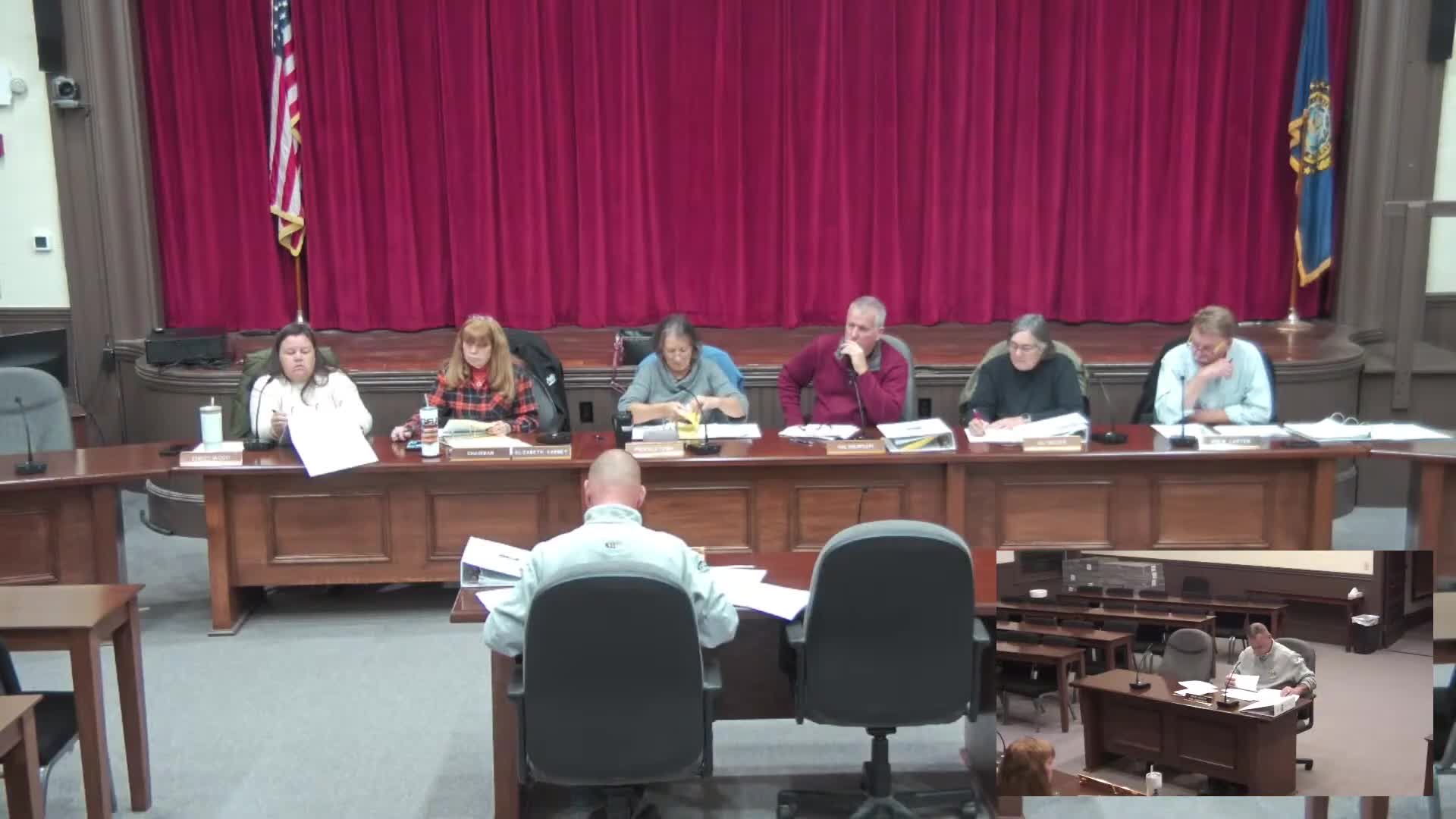Budget committee approves preliminary 2026 department budgets; payroll and insurance drive increases
Get AI-powered insights, summaries, and transcripts
Subscribe
Summary
The Alton Town Budget Committee on Oct. 29 approved preliminary operating budgets for multiple departments for fiscal 2026, citing payroll increases and higher benefits costs as primary drivers.
The Alton Town Budget Committee on Oct. 29 approved preliminary operating budgets for multiple departments for fiscal 2026, citing payroll increases, higher benefits costs and several one-time or contract-driven expenses.
Committee members voted to approve budgets after department heads and staff presented line-by-line explanations. Changes across departments were repeatedly described as payroll-driven: several presenters said full-time wage lines were the primary source of increases, while some non-pay items were reduced or held level.
Notable line items and committee actions included the following motions and committee votes (as stated on the record):
- “I’ll make a motion to approve the budget for administration $465,946.” Motion seconded; vote recorded in favor. - Motion to approve the building department budget (motion language spoken in the meeting; amount stated on the record). Motion seconded; vote recorded in favor. - “Make a motion to approve legal expenses for the 2026 budget at $145,418.” Motion seconded; vote recorded in favor. - Motion to approve parks and recreation budget (amount stated in the meeting). Motion seconded; vote recorded in favor. - “I’ll make a motion to approve the 2026 budget for planning and zoning for a $157,510.” Motion seconded; vote recorded in favor. - “I’ll make a motion to approve the lease budget of $1,586,715.” Motion seconded; vote recorded in favor (police budget/lease line). - “Make a motion that we approve the town clerk budget April at $113,843.” Motion seconded; vote recorded in favor. - “I’ll make a motion to approve the water department budget of $600,916.” Motion seconded; vote recorded in favor.
Several votes were recorded verbally as “Aye” without a roll-call tally in the transcript. Exact roll-call vote counts were not specified on the record for these motions.
Why it matters: The approved figures will guide departmental spending and influence final warrant articles the town will present to voters. Committee members and department heads discussed where the town could trim non-pay spending to absorb wage and benefits pressure and noted the town’s ongoing use of warrant-article funding for certain new positions that are now being incorporated into operating budgets.
What comes next: Committee members scheduled follow-up meetings to finalize remaining budgets and discussed options for voter education — including a mailed voters’ guide and supplemental online materials — in advance of the warrant.
